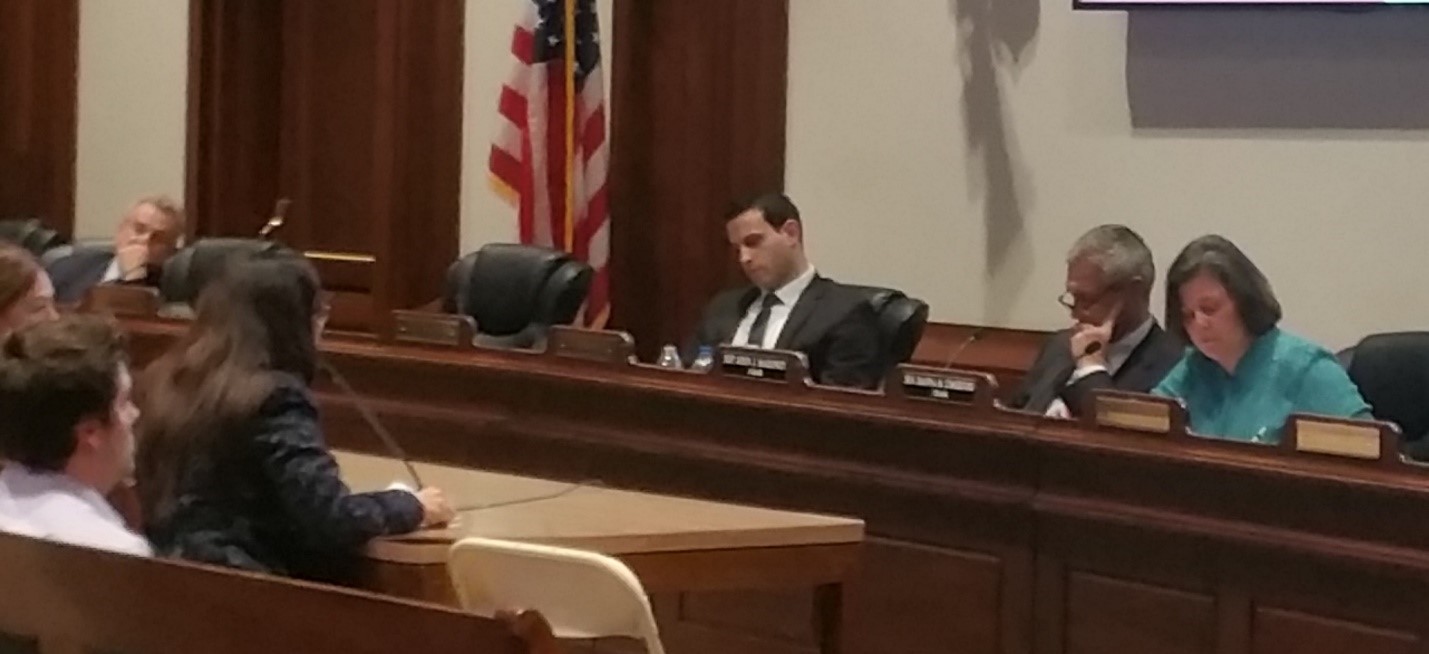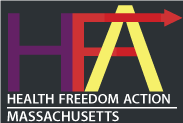“An Act providing for consumer access to and the right to practice complementary and alternative health care services.”
2023/2021 Legislative Cycle
View the Bill S.1329/H.2244
This will be our fifth attempt to pass this bill for this legislative cycle. It has been posted to the Joint Committee on Public Health as of February 16, 2023. Please read all the details below about the bill.
2021/2022 Legislative Cycle
Bill Sent to Study
View the Bill S.1380/H.2343
Over the past 2 years, the legislation drafted by HFAMA secured sponsors in both the House and the Senate, garnered bi-partisan support from co-sponsors, and enjoyed strong public support at the public hearing of the bill (see below).
The bill successfully made its way to the Ways and Means Committee – the last step before a floor vote – when the pandemic shut down normal business operations, and the 2-year legislative session ended without resolution on the bill.
Efforts have begun again with the legislative session that began January 1, 2021. The bill, An Act Providing for Consumer Access and the Right to Practice Complementary and Alternative Health Care Services, currently has been sponsored by Representative John Lawn in the House and Senator Nick Collins in the Senate.
For the latest news regarding our bill, see our “news” page: https://hfama.org/current-news/
To receive updates on the bill and to learn how you can support our efforts to get this important bill passed, please add your name to our list of supporters: https://hfama.org/join-now/

Co-Chairs John Mahoney and Jo Comerford (pictured right) take notes as Kim Valeri Povey testifies.
Our Bill Gets Heard on Beacon Hill
On November 19, 2019 over 12 months of work culminated in a public hearing on H3660/S665, The Massachusetts Consumer Access and Right to Practice Complementary and Alternative Health Care Act, as reaction to the bill was heard by the Joint Committee on Public Health.
Rep. Donald Wong introduced the bill accompanied by 2 MDs and a chiropractor who all underscored the need for safe harbor for unlicensed holistic health practitioners.
An additional 34 individuals who had traveled from all corners of the state spoke out in support of the bill while not a single voice was raised in opposition.
The bill now moves into an executive session where we hope it will be favorably passed quickly out of the committee and sent to the floor for a vote.
Bill Background
Who We Are
The Committee for Protection and Access to Complementary and Alternative Health Care is dedicated to protecting the right of Massachusetts citizens to access and practice the complementary and alternative health care of their choice. The committee works closely with National Health Freedom Action (NHFA), a non-profit created to promote access to all health care information, services, treatments and products that the people deem beneficial and to promote legislative reform of the laws impacting the right to access.
The Situation
Nationally, at least 40% of consumers now utilize complementary and alternative health care options including dietary supplements.[i] Consumers spend almost $35 billion annually on out-of-pocket purchases of products and services, including nutritional supplements and advice regarding chronic health conditions. This industry supports countless families of our Commonwealth via small business while providing safe, valuable complementary and alternative approaches to healing and health care.
The Challenge: Consumer Access and Right to Practice
It is clear the Massachusetts public desires access to complementary, alternative and natural health care reflecting their personal beliefs, interests and preferences. However, in some circumstances, its practice may be interpreted as the provision of a service only a licensed health care professional may perform. This could subject practitioners to fines, penalties, and restrictions, despite their methods not posing an imminent and discernible risk of significant harm to the public’s health and safety.
The Solution: Common Sense Exemptions with Consumer Protections
Our legislation removes current legal barriers to continued public access to complementary and alternative therapies by clarifying existing law and setting common sense boundaries for practitioners spelling out prohibited acts and mandatory disclosures. Should practitioners step outside of these bounds, they do not receive protection from the exemption law and could be subject to penalties. Our strict parameters provide easy-to-understand guidelines and protections for both the consumer and practitioner, including herbalists, homeopaths, traditional naturopaths, and wellness consultants to name a few.
- Prohibited Acts – Practitioners are strictly prohibited from puncturing the skin; prescribing or dispensing a prescription drug or a controlled substance; or holding themselves out as health care professionals if they do not hold the applicable state registration, certification, permit, or license; and more.
- Required Disclosures – Practitioners must provide written disclosures to their clients containing contact information; a description of the complementary and alternative health service(s) that the person proposes to provide to the individual; and a list of any credentials, or other qualifications the provider has with respect to the service(s) that they propose to provide to the individual.
Benefits: Small Businesses and Consumers
This legislation would provide a common-sense exemption from state occupational registration or licensing requirements and protection for those non-invasive complementary and alternative health care practitioners who are practicing their trades in the public domain, from the charge of ‘practicing without a license’ as long as they follow strictly the above parameters. Consumer access with increased protection is the manifold result.
Precedent: Consistent with National Trends
Exemption laws for complementary and alternative health care practitioners offer a practical strategy for managing the thousands of practitioners and businesses providing services in the public domain. Exemption laws provide both practitioners and the state with agreed-upon guidance regarding practice parameters. Currently 10 states have a safe harbor exemption law including Minnesota, Rhode Island, California, Louisiana, Idaho, Oklahoma, Nevada, New Mexico and Colorado, and Arizona has a safe harbor for homeopaths. Approximately twenty additional states have introduced this type of legislation.
Conclusion
Legislation protecting consumer access and right to practice is spreading nationwide. Freedom of choice in matters of health care stands among our most personal and cherished liberties. State governments are responding by increasingly codifying and ensuring the public’s right to access the health care that works best for them while protecting the livelihoods of untold thousands of small businesses. We invite you to join us in ensuring the continued health and freedom of your constituents as our bill progresses through the legislative process.
[i] See e.g., NIH, Trends in the Use of Complementary Health Approaches Among Adults: United States, 2002-2012, NATIONAL HEALTH STATISTICS REPORT (Feb. 10, 2015), available at: https://www.cdc.gov/nchs/data/nhsr/nhsr079.pdf.
